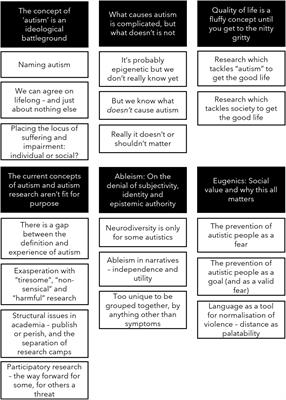Unravel the intricate connection between parenting styles and autism as we delve into the fascinating world of scientific research in our latest article, “The Science of Parenting Styles and Autism: What Research Reveals.” This insightful piece will shed light on the various parenting strategies and their impacts on children with autism. Stay with us as we explore the latest studies, significant findings, and expert opinions, offering you a comprehensive understanding of this complex topic. This article is a must-read for parents, educators, and anyone interested in the ever-evolving field of autism research.
“Understanding Autism: A Comprehensive Overview”
Autism, also referred to as Autism Spectrum Disorder (ASD), is a broad term used to describe a group of neurodevelopmental disorders. These disorders are characterized by challenges with social interaction, speech and nonverbal communication, and repetitive behaviors. ASD is a complex condition that has many subtypes, often influenced by a combination of genetic and environmental factors. While autism is typically recognized in early childhood, it is a lifelong condition. Understanding autism is vital for parents, especially in tailoring their parenting style effectively. Research continues to evolve, revealing much about autism and its implications on parenting styles.
“Scientific Insights into Parenting Styles for Children with Autism”
Research provides profound insights into the effectiveness of various parenting styles for children with autism. Scientific studies have identified that a more structured and consistent parenting approach often benefits these children, helping them develop better social skills and behavioral control. The ability to adapt and tailor parenting styles to meet the unique needs of autistic children is crucial to their cognitive and emotional development. From fostering communication capabilities to managing anxiety, the science behind parenting styles for children with autism elucidates the importance of an individualized, patient, and understanding approach.
“Research Findings on the Impact of Different Parenting Styles on Autism”
Recent studies have shed light on the profound impact of various parenting styles on the development of children with Autism Spectrum Disorder (ASD). Research indicates that a tailored approach, combining elements of authoritative and permissive styles, often yields the most favorable outcomes. This flexible, empathetic method encourages independence while providing necessary support, enhancing the child’s social and cognitive abilities. Furthermore, research underscores the significance of early intervention, with consistent, nurturing parenting mitigating ASD symptoms over time. Understanding these findings is crucial for parents and caregivers aiming to optimize the quality of life for children with ASD.
“Effective Parenting Techniques for Autism: Evidence-Based Strategies”
Research reveals that effective parenting techniques for children with autism often involve evidence-based strategies. These strategies can significantly enhance the child’s communication skills, social interactions, and overall development. Some of these methods include Behavior Analysis (ABA), Structured Teaching, Speech Therapy, and Social Skills Training. Each method is personalized to cater to the unique needs of children with autism, aiming to promote their independence and quality of life. Understanding and implementing these techniques is crucial for parents, as they can substantially impact their child’s progress and overall well-being.
“Bridging the Gap: How Parenting Styles Can Influence Autism Outcomes”

In the section, “Bridging the Gap: How Parenting Styles Can Influence Autism Outcomes”, we delve into exploring the crucial role parents play in shaping the development and well-being of children with autism. Scientific research has shown that certain parenting styles, particularly ones that are nurturing and responsive, can significantly improve autism outcomes. By understanding the connection between parenting styles and autism, parents can enhance their strategies to foster their child’s growth. This key knowledge serves as a tool for parents to navigate the complex journey of raising a child with autism, promoting positive behavioral changes and improving their overall quality of life.



